Muriel Beal moved into the Denizen in 2020, when the nearly $4,000 a month she paid for a luxury condo was a golden ticket to amenities that included a bowling alley, outdoor hot tubs and brewery two buildings aways on an otherwise quiet block in Bushwick. When the pandemic hit, Beal, 31, even managed to land a deal giving her an extra six weeks for free on the condition that she resign her lease, making the extra $150 monthly fee for a rock climbing gym, mini golf and the building’s instagram-worthy minimalist design all the more appealing.
It was only when she tried to renew her lease for a third time that Beal was sent a collection notice for $12,000, after the building’s new management company said they didn’t have evidence for the free months she was entitled to. Once she decided to move out, the dispute stopped her from getting a reference letter from her landlord, hindering her ability to find anywhere else.
“Apparently, the [old management company] did the wrong math,” Beal told me. “But they took literally a year to find out that I was charged the wrong amount.”
After an internal review, her fees still totaled $9,000, Muriel says. She hasn’t shelled out the money, but management used the reason to hold her $3,650 security deposit , she says — a reported experience she shares with other tenants.
The Denizen, which completed construction in 2019, has had a shaky existence in the neighborhood, from its early days as a blueprint. Nearly a dozen complaints were filed with the city between May 2016 to December 2017 over late-night construction, falling debris and unsafe working conditions during severe winds. But while the Bushwick development has racked up city violations over everything from over a dozen reported elevator issues to failure to obtain permits for its dog spa to ignoring calls to maintain its fire alarm systems, according to public records, tensions have now shifted from agitated outside complainants to those of its current and former tenants.
Tricia Riccuici, a former tenant, says she was sent a bill for over $2,800 in unexplained charges from the development’s former management company, Smart Management NY, months after she already moved out in 2020. While the fees were waived after she asked about the bill, she says her husband received the same collection call just months after the dispute was resolved.
“They were saying they were going to evict me. I was like, ‘I don’t even live there anymore,’” Riccuici said. “[Management] then told me, ‘oops, I do see here now that you did vacate. Actually, the unit is open and your balance is zero’ … my husband got a call after that with the same spiel: that he owed $7,400.”
“We allowed this tenant to terminate her lease and move out, and she had a zero balance at the time of move out,” a Smart Management spokesperson said in a later email, after publication, emphasizing that “the calls and/or bills did not come from Smart Management.” They blamed those problems on the next management company.
Another tenant, Lina Zhu, said her $12,000 security deposit was issued to the wrong tenant account.
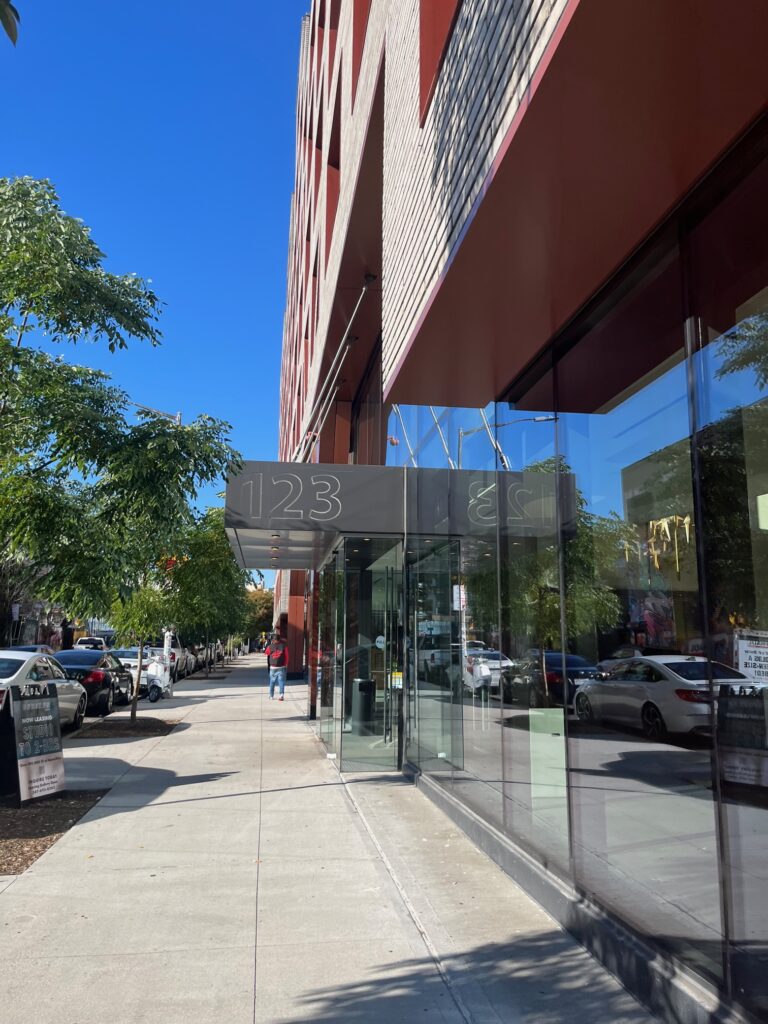
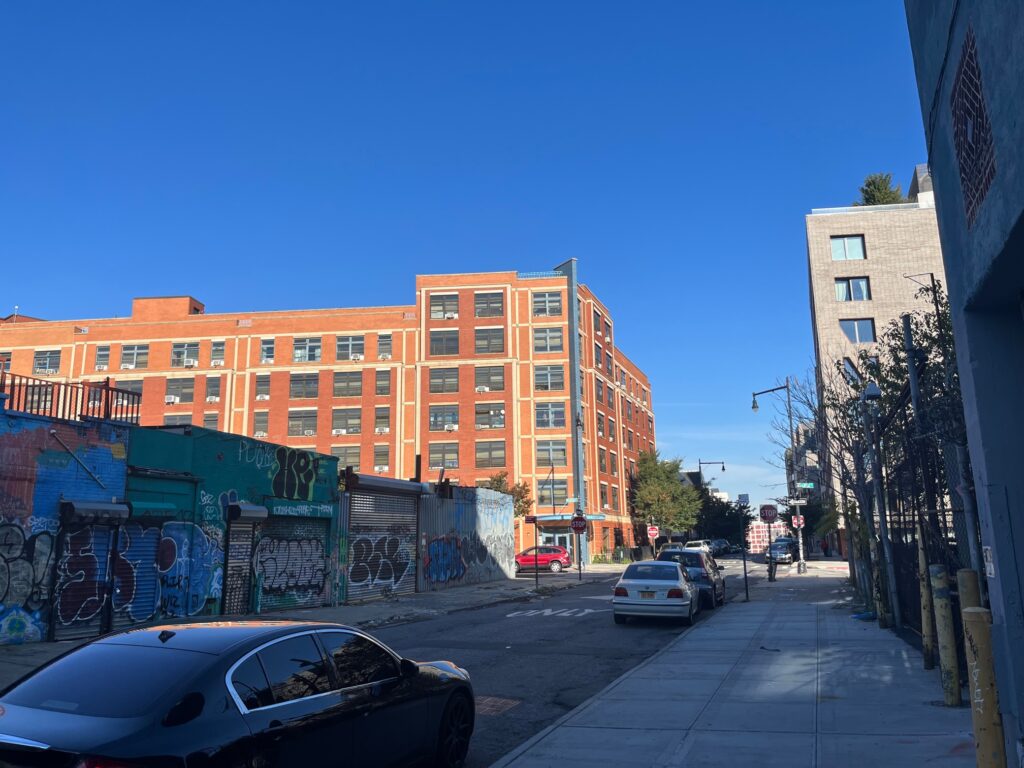
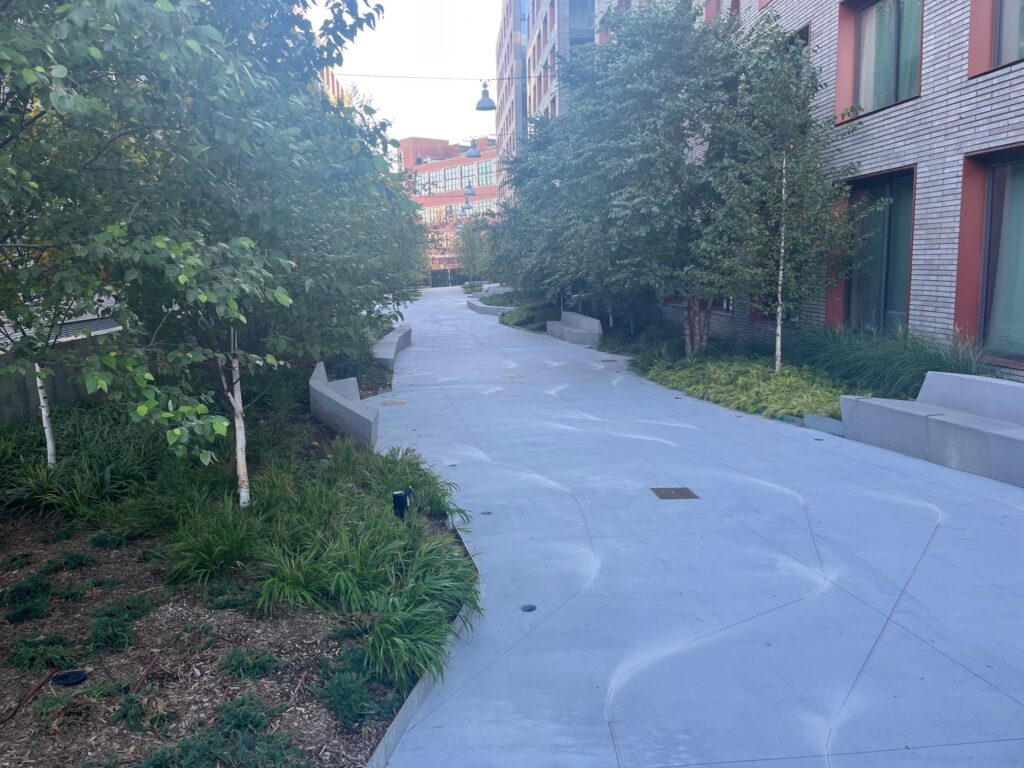
The Denizen switched management companies in late 2021 to Atlas Capital after its former owner filed for bankruptcy. But the transfer has been far from smooth, according to building tenants, who report erroneous charges and missing lease documents so frequently that one tenant, Ryan Coleman, who uses they/them pronouns, started a tenant association in 2022 to address the matter.
“The old company’s records were wildly inaccurate and the new management is claiming the old management miscalculated the rents, so they’re trying to go after people and try to get back rent from the previous company,” Coleman said.
Notably, the former owner reportedly refused to turn over copies of its books on the property to a lender and a court-appointed bankruptcy administrator before the ownership tradeoff, The Real Deal reported.
Coleman added that residents are largely afraid to speak out about overcharging issues. Coleman cites multiple health and safety issues throughout the building, as well as being asked to pay an additional $40 on their lease six months in.
Complaints against the complex found in the city’s Department of Housing Preservation and Development from last year alone include roaches, broken floor tiles, warped walls and mold in the 123 Melrose building. At least one apartment also complained of no hot water. Slow leaks and at least one broken apartment door have been reported in the 54 Noll building, with some tenants providing pictures and video of incessant hallway flooding to Bushwick Daily.
Other safety issues, such as faulty locks for the doors to the building and limited access to certain key fob-operated areas, including exits, have been raised by tenants.
According to a complaint submitted to the city in February 2020, one tenant became trapped outside the building in a courtyard and was unable to get out as the stairs leading to the exit was considered an amenity and required special key fob access. The city later found no fault with the building, noting in a report with the NYC Department of Buildings that the interior courtyard was controlled by an electronic release “in case of emergency.”
Some entrances, like the doors on the Noll Street side of the development, have been left broken and unlocked for months, tenants said during a meeting.
Since 2017, the Denizen has accrued 16 elevator violations with residents reporting non-working elevators, or worse: residents getting stuck in elevators on more than one occasion, according to statements made at a tenant organization meeting.
Sean McKeough is among the few tenants who have brought safety complaints outside of the Denizen’s manicured atmosphere and into the public light. McKeough, who has lived there since at least February 2021, opened a Department of Housing Preservation case against management, and inspectors have found mold throughout his apartment, according to housing court records.
Since April 2021, McKeough has complained of broken floors, water leaks, peeling paint throughout the apartment, according to HPD documents — an inspector found mold in all rooms of his apartment in April 2021.
A minority of tenants actually report things out of fear of pestering landlords, according to Antoine Morris, an attorney at the Legal Aid Society.
“Even when they do [file a complaint], they think they might be retaliated against in ways that would make their lives difficult … which might entail slow response to other fixable issues,” Morris said.
McKeough owed over $43,000 in back rent since February 2021 — plus another $20,000 to Smart Management— before the lawsuit against him was scrapped in December 2022. McKeough cited overcharges on his lease, as well as unlivable conditions in the building, as reasons for the nonpayment.
The Denizen’s management isn’t just in court defending itself. It’s also suing nearly a dozen tenants for eviction, including McKeough. There are multiple active eviction lawsuits in Kings County Housing Court against the Denizen’s tenants, mostly regarding nonpayment.
Others are being sued for repeatedly posing safety threats to neighbors. According to court documents, tenants being sued for eviction in the last two years have listed rental units on short-term rental websites; harbored dogs that defecate in common areas around the building causing an “unsanitary and unhealthy condition”; and screamed in the lobby while covered in blood, to name a few incidents.
According to court documents, the Denizen management filed to evict Jonathan Allen, who has resided in one of the complex’s 183 rent-stabilized units since December 2019. The Denizen’s attorneys say Allen’s female guest (and daughter of another resident being sued for eviction) banged on apartment walls, damaged building property, screamed and attempted to pry his door open, on at least one occasion as eviction-worthy nuisances.
Morris, who is representing Allen, says that the case is your standard “run of the mill” tenant misconduct case in which landlords point to multiple tenant complaints in the case for his clients’ eviction. It’s one that, according to him, happens all too often.
Morris noted that defendants’ attorneys aren’t just worried about landlords, but also other tenants who may be high-income and don’t want to reside with people who are recently out of shelters or have Section 8 in addition to being rent-stabilized tenants. As part of the Denizen’s 421a tax abatement, 20 percent of its apartment units must be affordable, resulting in a rift between high-paying tenants and those in affordable units.
“The classism, along with race, definitely coincide,” Morris said.
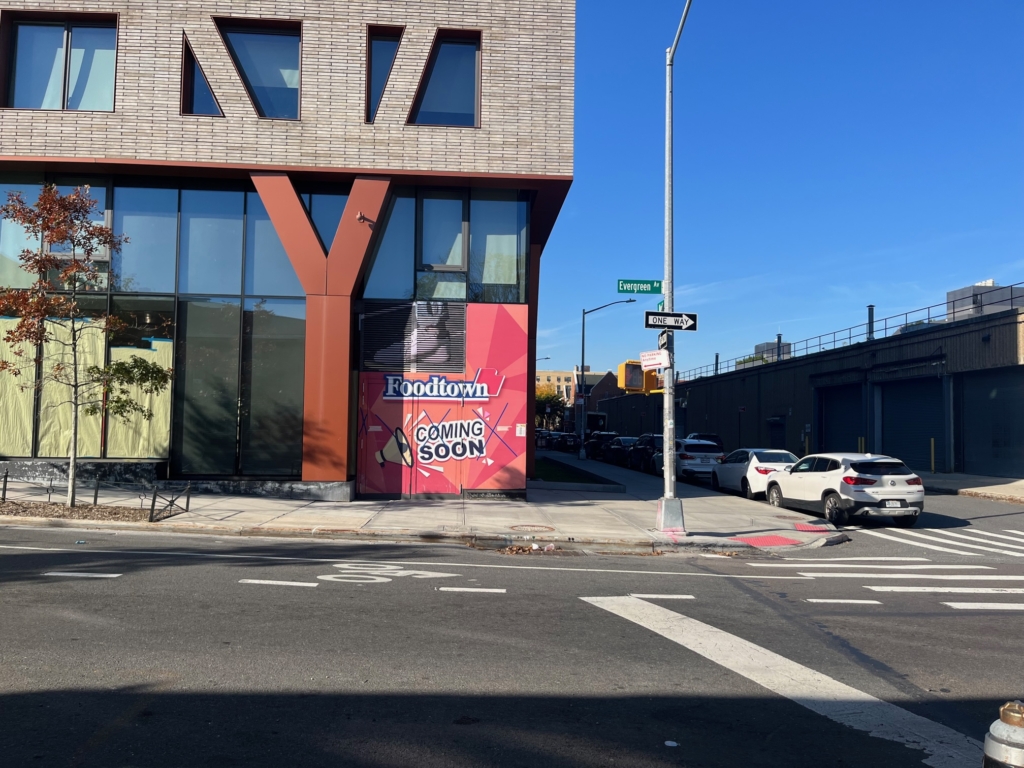
Allen’s case is still ongoing, pending an August court date.
A public green space in the Denizen developer’s original City Planning Commission report remained unopened for years, despite multiple notices to conform issued to the ownership. Situated between the two buildings, One Bushwick Park quietly opened in November 2022, even though the ownership was slated to open the 17,850-square-foot park before leasing to the building started in 2018, per a DOB report. Atlas Capital attributes the stalled project to the building’s previous management company.
But not all tenants are fans of the new public green space.
Coleman, who started the tenants’ association, said some have spoken out against the idea of a public area so close to the development, citing the possibility of homeless encampments, noise and safety issues in and around the complex.
“The biggest concern right now is safety because people’s units back up right into the park,” said Coleman, who has since moved out of the building. “Obviously homelessness exists, [but] the building has not told us a single thing about if there’s going to be a guard to watch and make sure that it is safe. Would you want people walking around in your backyard?”
Bushwick Community Board 4 District Manager Celeste Leon said the board was unaware of the swath of violations accrued by the former and current management. In fact, Leon can’t recall an interaction with the Denizen management since she started working with the board five years ago.
Coleman also noted that the Denizen management has been urging tenants to use Green Central Knoll, a city-owned youth sports field located across the street, in place of The Denizen’s private rooftop dog run. Multiple complaints stemming from children stepping on dog waste and animals chasing after balls have forced the youth leagues to find an alternative sports field this season, Leon said. Signs highlighting Green Central Knoll’s no dog policy have also been taken down several times, she said.
In an emailed response to Bushwick Daily’s question about whether it directs tenants to run dogs at the public park, Denizen management said it does not direct residents to use Green Central Knoll “for this purpose.”
What’s more, plans to build an in-unit Foodtown grocery store — a coveted community contribution in a neighborhood designated as a food desert— went quiet for years at the Denizen, despite signing a lease for the space in 2018. August finally began to see progress on the grocery store, complete with neon signs advertising a September opening date.
When asked about how conditions can improve, Leon said it must begin with transparency and communication between all parties involved.
“It’s just about knowing how to interface,” Leon said. “Or not having them give up and say, ‘this community board sucks, because they basically told us a sports field is a sports field and we can’t have our dog here.’ We’ve got to do better.”
Aside from tenant safety concerns and community pressures to build the promised public amenities, the Denizen’s tenuous relationship to Bushwick has existed long since it began leasing luxury apartments, according to Leon.
The building sits on what was once the historic Rheingold Brewery, which served as a local beacon of a prospering upper middle class in a predominantly Black and Hispanic neighborhood in the early twentieth century, Leon said. However, the site subsequently fell into disrepair in the latter half of the twentieth century following mass redlining, zoning changes and blockbusting in the neighborhood.
“That was [a] brewery nationally known for its beer, and it had not just historical significance, but economic significance to the neighborhood,” Leon said. “And so for that to just become residential and to remove the opportunity of that ever serving the community in that way, was obviously of concern to a lot of folks who believe in the industry and believe in opportunity … to ensure the neighborhood itself was able to self-sustain as it relates to jobs and economic opportunity in the future.”
Whether the Denizen’s residents remain either furious or unbothered about safety concerns or their larger community impact, Leon said it likely doesn’t matter for the building’s owners, as no city agency is responsible for monitoring community impact.
“When you come in and you say ‘we’re going to make a village within a neighborhood, you’re basically saying, ‘we’re going to come in and release our flag here, we have everything we need in our village,’” Leon said. “That was the impression that I think folks got, and it’s still very much like that. It’s very much separate [from Bushwick].”
Images taken by Nicole Rosenthal for Bushwick Daily.
For more news, sign up for Bushwick Daily’s newsletter.
Join the fight to save local journalism by becoming a paid subscriber
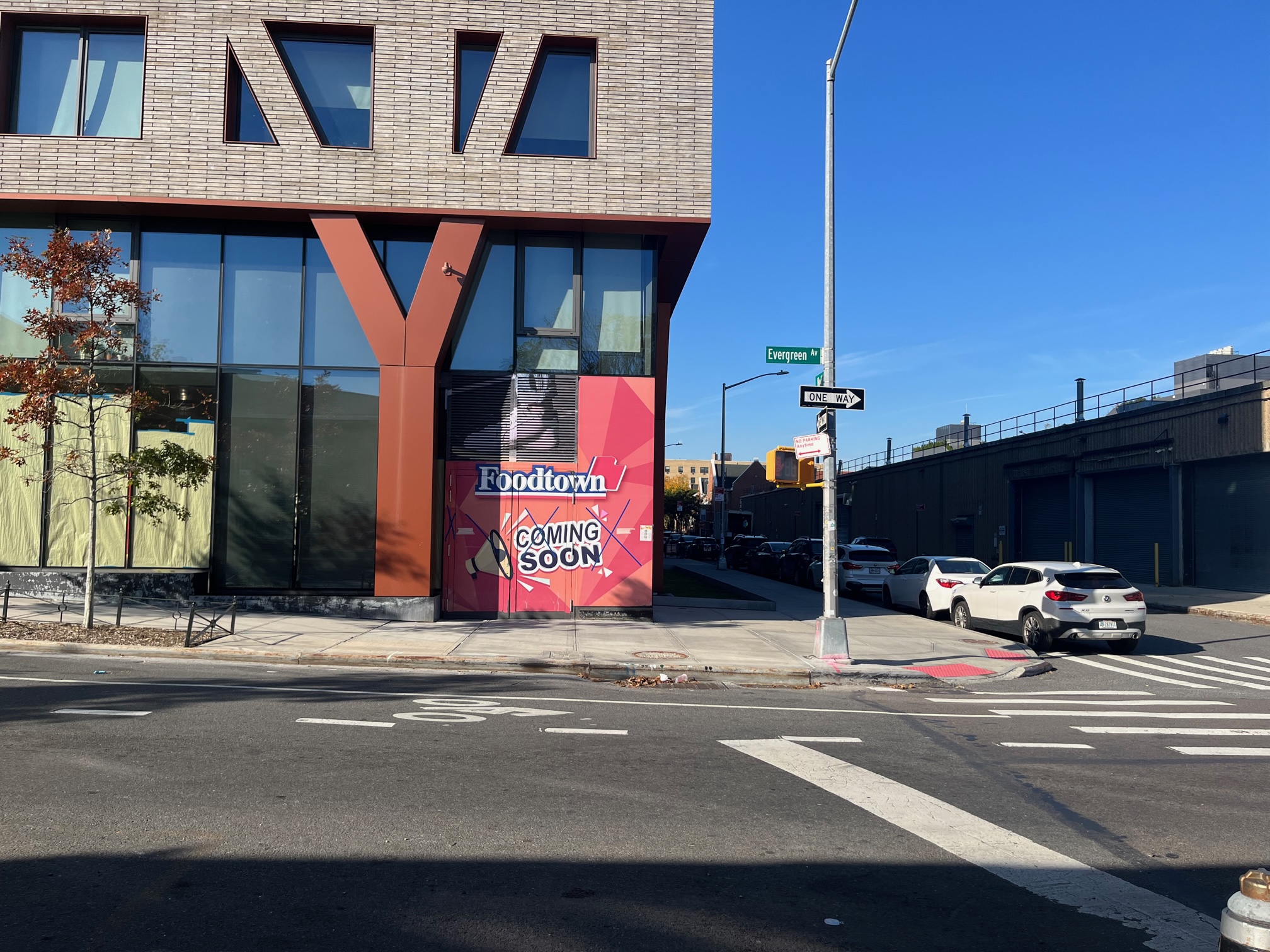


This was such a great article about a terrible place in Bushwick! My partner and I looked at this building on a whim back in 2018 and I immediately got a bad feeling about the place.
Celeste Leon describing it as a village in a neighborhood is spot on. I feel for the tenants who have had to deal with mold and harassment, but Denizen always positioned itself as a secluded “haven” away from Bushwick, which is definitely not the way to connect with the neighborhood you’re living in.
Amazing article! I’m currently suing them and if you need another story of how horrible this place has been to me for the past 2 years, i am more than happy to express! Thank You
The place gives off a very bad feeling when you look into renting there. There is a Yelp page dedicated to it, which I’ve never seen for a rental building, where reviewers report that the ventilation system migrates cigarette and other smoke from some apartments to others – frightening.
In addition to the park, bowling alley and supermarket they dragged their feet to open, there’s also a pool that they never filled.
If they lived up to the promise of this concept, it could be a great place to live. Instead, one gets the feeling that they just didn’t found it in a good business model and are way in over their head. Too common in our age.
The neighborhood deserves better and it’s management companies like these that impede Bushwick from becoming a better place to live. New Yorkers deserve so much better than this, especially when made to pay so much in rent.